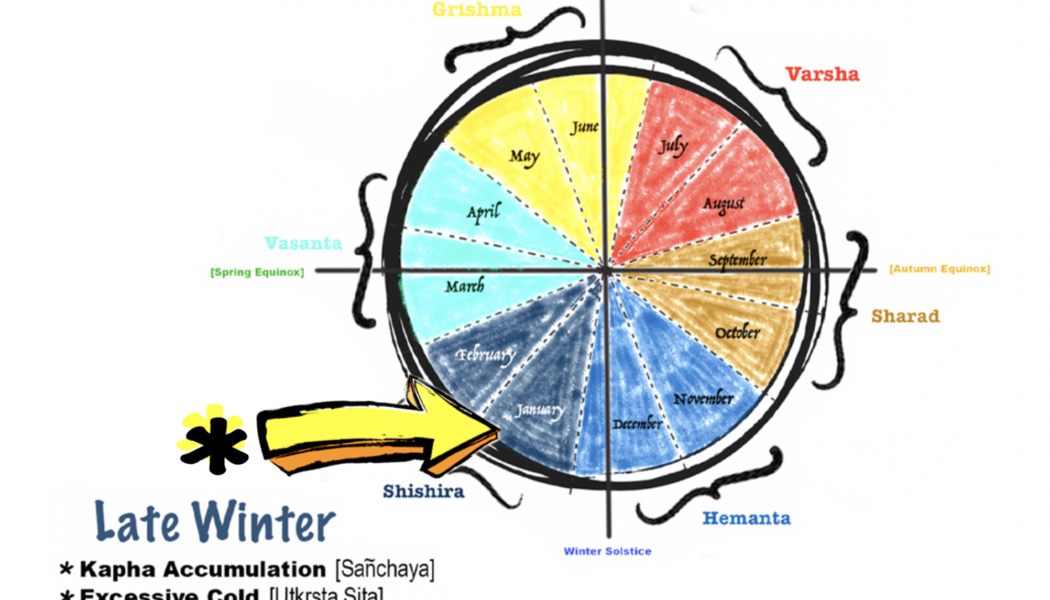Ayurveda Guide For Winter Season
Ayurveda Guide For Late Winter Season
Ayurveda Guide For Late Winter Season Ayurveda explains that whatever there is within the environment is also there within the human body and that such changes within the environment have an influence upon the body. During this time of year, the qualities of nature become excessively cold & excessively dry and therefore influence the body as such. Essentially, keep doing what you’re doing BUT more so … Meaning, it’s advised to continue the same regimen of early winter during late winter. For example, having meat soup prepared from well-nourished animals with the addition of fat; such as ghee. Having alcoholic drinks made from jaggery and consuming other food made of wheat, black gram, sugarcane and milk products are ideal during winter season. It’s also...
5 Health Tips For Winter Season – Balancing Vata Dosha
5 Health Tips For Winter Season Winter is the season when the earth’s energy withdrawls back into herself as nature slows down with cold, damp, and heavy qualities. Because of these cold qualities – many people experience signs and symptoms of vata aggravation [anxiety, insomnia, etc] especially during the early part of winter season. Here are some simple ways to remain cozy and healthy during winter season while balancing vata dosha. Vata Dosha – Flow & Motion Vata dosha governs flow and motion in the mind and body — the movement of thoughts across our minds; memory; food moving through our digestive tract; elimination of wastes; the flow of our blood; and our breath. For the movement of all three doshas — Vata makes it happen; it’s the leader! Since the oth...
The Ayurveda Guide For Winter Season
The Ayurveda Guide For Winter Season Winter is a time when nature’s energy withdraws back unto herself as nature’s many expressions begin to slow down. According to Ayurveda, a person is a miniature reflection of nature and winter represents a time for much needed restoration. Every season has certain attributes which may cause aggravation and imbalances of doshas. For example, winter is generally considered a “kapha season”. Therefore, colds and other kapha conditions [i.e. congestion] are more common as the heavy, cold, and cohesive qualities of kapha are predominant. However, a balanced lifestyle in accordance to seasonal changes helps to create the needed elements in order to maintain health and well-being for the body and mind. Winter Tips – How To Stay Balanced & Healthy Du...





